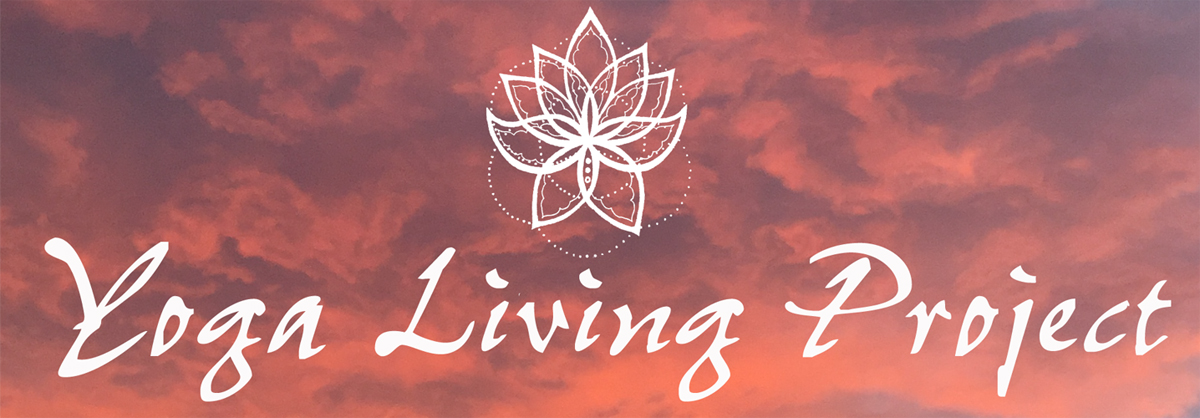In this week's installment of the Yoga Living Project, Cambio teacher and YTT faculty, Caleb Hall, shares insights on compassion that were gleaned during a recent yoga festival. Give it a read for some new insights - and maybe catch Caleb's classes Sunday 10:30a and Mondays 7:15p at Cambio Pikes Peak.
A Journey of Compassion by Caleb Hall
My journey discovering compassion began about eight months ago at a little yoga festival on the border of Colorado and New Mexico. I had the opportunity to present a workshop to this community, and took up the journey of driving to one of the hottest locations in our state. This festival was very grassroots and attracted the community of a similar nature: an eclectic group of individuals with vastly different backgrounds than myself from all over the country and world. I say this with love, but some the types who smelled as if they had been exposed to hot New Mexico sun for days prior to the first day of the festival. And it did not even matter!
Yet, it held a place for immense reflection for me. There I was trying to connect with myself, and instead I was surrounded by the world. Around me, I was with so many others – displaced by pandemic, hardship, a desire for adventure, and every other reason between. I sufficed to yield my spiritual growth to nothing, but the movements of the trees and the glory of the mountains around me. Funny, how sometimes “when you go searching for yourself, you instead find the world,” to quote a favorite author, Elizabeth Gilbert. And in that time of growth, I found a well of something profound within me— a wellspring of a part of myself that I had not realized I had stowed away. Like a water pump strikes an aquifer, it was at a breath-work class at this festival that the pool of compassion within me came rushing to the surface of my mind. It was revolutionary – the simplest thing – that I realized I had spent so much of my life helping others without always connecting it to this aspect of compassion. So surreal was this feeling that I may as well have changed my name: Compassion. I recognized that this pool was exhaustless. Little did I know that my compassion would find me, as it had always been there in waiting.
Since, I have been on a quiet journey to connect with compassion. How does it show up on my yoga mat? What does it mean? Recently, I revisited some of my old writings. If you ever need to witness growth, just look at an old journal. When we can do this, our lives become the lessons and the reflections of the journey we experience. This becomes the value of self reflection and sacred self study, known in yoga as svadyaya. So, I looked through old writings, attempting something very specific. I wondered if I could retrace the thread of compassion in my own life. In this venture, what I discovered was deeply profound, and offered me a lens of fascination with my own lived journey.
To love all is the simplest, noblest constitution of all. Yes, to love all needs to come from a deep sense of self love at times. For arguments sake, let’s agree that this is often difficult. We forget to do this sometimes. To love is not an easy place to begin from. As Thich Nhat Hanh writes, “Love is a mind that brings peace, joy and happiness to another person.” To reach this frame of mind, though, I have come to believe that we must, at times, sit instead in the mind of compassion. By sit, I mean to frame our thoughts, energy, and exist within a determined mindset.
The compassionate mind, “is a mind that removes the suffering that is present in the other.” The etymology of compassion seems to counteract the way that we know compassion in action. The word directly translates as, “to suffer with.” Considering this, I think the mind of compassion connects to a mind of love. However, both require a deep desire or yearning to understand another’s present experience.
When we have compassion we are able to approach another’s life, and not just be present for the struggle, but to quite literally sit in the suffering with them. As bleak as it sounds the idea is truly profound. Can you love in such a way that you can be present and exist in another’s suffering? Here, love and compassion do not require having the answers or knowing the right words to say. They do not even require you to understand the circumstances that
have caused another’s pain. Merely compassion is a willingness, a determination, to not allow anyone to struggle alone.
To do this work, externally, we may need to begin from within. So in my search for compassion in my own life, I instead emboldened my own compassion in the present moment. I read through moments of my life from journals where I was insecure, heartbroken, lost, and yes, sometimes victorious. It was no easy task to view the struggle and suffering of someone else—my past self. Yet, it made me realize what it means to sit in the suffering with another. This became my practice. I knew what I felt in all of the moments I was reading and could experience offering my self compassion in the times that I read my struggles. Through that, I sat with my self as the force of compassion that I sought for in those moments. In a sense, I realized that all of those times that I felt alone, unheard, or lost, I never truly was. My mind, the mind of compassion, was always there with me. Re-reading the words, knowing the way that things played out, gave me a lens to give myself grace and compassion in those moments. This realization allowed me to heal what I have held deeply rooted in myself.
When we talk of the mind of compassion, I think we speak of a path of liberation for all. Compassion asks us not to embody the experiences of someone else that have led to their suffering. Instead, compassion allows us to experience their suffering as ally. It is the belief, “I might not understand what has caused your suffering, but feel your suffering, and I refuse to let you sit alone.” It allows us to sit in the heartfelt position, that when one of us suffers, we all experience suffering. Sitting in the mind of compassion, we make an oath to each other, that when one cannot live in prosperity, Artha (the yogic understanding, Artha, the ability to live in comfort that allows one to enact their purpose in life) then we all can not possibly live and prosperity. For through doing this, we may all lead each other to the path of love.
A mind of compassion is gifted within us at birth similarly to the mind of love. It is my hope, that eventually our ability to offer compassion will cause those who suffer, and those who cause suffering, to experience the stream of love that flows from the heart.
So, it’s here where my journey of compassion is passed to you too. Can you love in such a way that you can sit with another’s suffering? Can you love in a way that sets someone else free of their suffering?
References:
Swami Chidananda- whom taught me and a group on a concept called the, Ladder of Sorrow. https://m.youtube.com/watch?v=VixRw6DfQdY
Thich Nhat Hanh- Peace is Every Step
Elizabeth Gilbert- Eat, Pray, Love

